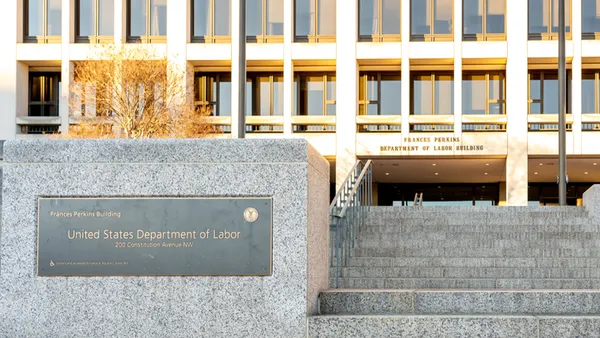Dive Brief:
- The Society for Human Resource Management (SHRM) has largely backed the U.S. Department of Labor's (DOL) proposed overtime rule, voicing its support in comments submitted last week.
- The organization said it agrees with the proposed retention of the current duties test and methodology for establishing the $35,308 minimum salary threshold for exemption, without regional variation, but asked that DOL reconsider the proposed increase for the highly compensated employee exemption. SHRM also suggested that all bonuses and commissions be counted toward the salary threshold as part of total compensation, regardless of amount.
- Finally, SHRM urged DOL to ensure a separate rulemaking, focused on calculating an employee's "regular rate" for overtime purposes, is harmonized with the impending overtime rule and that employers receive at least 120 days to implement any final rules.
Dive Insight:
It's been a long and winding road for the proposed changes to the overtime rules, and this latest proposal has DOL increasing the salary threshold for overtime eligibility under the Fair Labor Standards Act (FLSA) to $679 per week ($35,308 per year), up from the current $455 per week ($23,660 per year).
While automatic adjustments to this figure were previously under consideration, the current proposal does not include them. Instead, DOL said it intends to propose regular updates, which would require notice-and-comment rulemaking.
The rule would also allow employers to include "certain nondiscretionary bonuses and incentive payments" to satisfy up to 10% of the proposed $679 per week salary threshold, and would also increase the total annual compensation requirement for highly compensated employees to $147,414 per year, up from the current level of $100,000 per year.
The proposed rule makes no changes to overtime protections for certain first responders (police officers, firefighters, and paramedics); nurses; laborers, including non-management production-line employees; and non-management employees in maintenance, construction and similar occupations, including carpenters, electricians, mechanics, plumbers, iron workers, craftsmen, operating engineers, longshoremen and other construction workers.
The comment period for the proposed rule closed on May 21.












